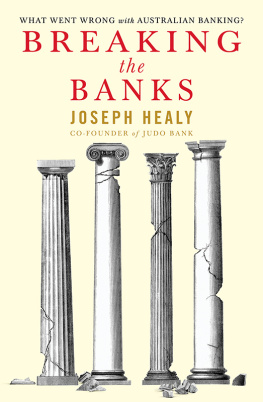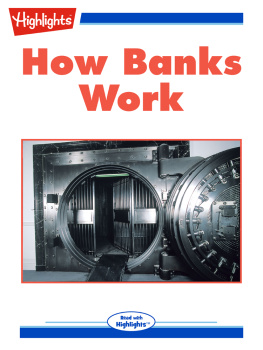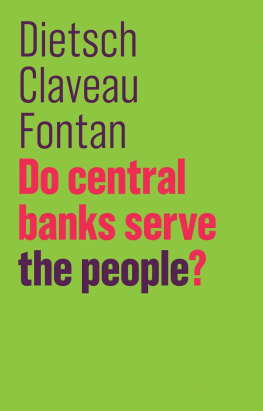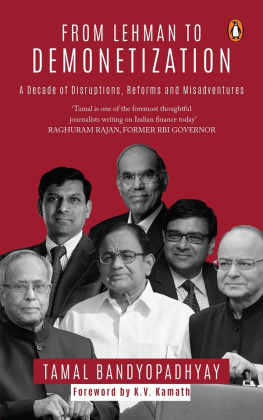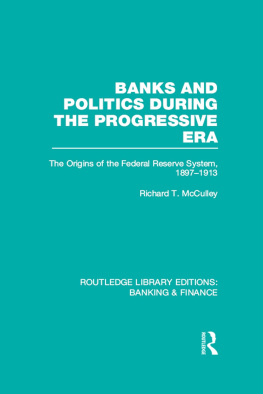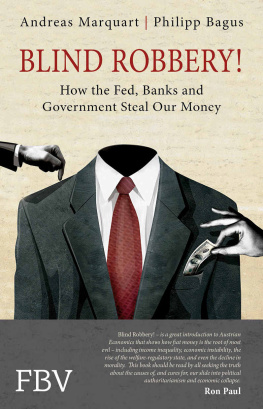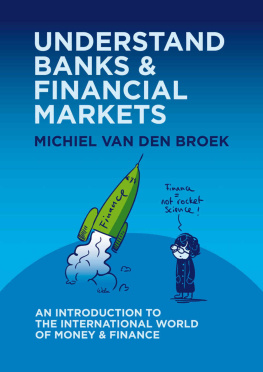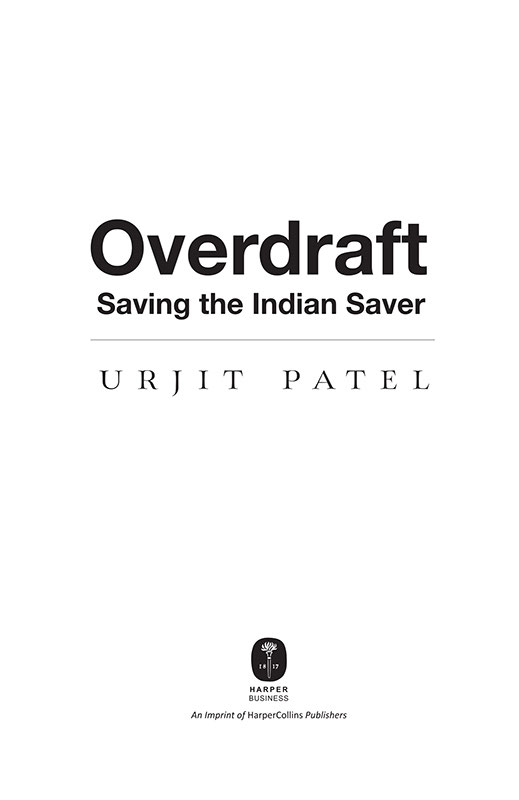For the Indian saver
CONTENTS
| AE | Advanced Economy |
| AMH | Aggravated Moral Hazard |
| AQR | Asset Quality Review |
| BCP | Basel Core Principles |
| BR Act | Banking Regulation Act, 1949 |
| BRICS | Brazil, Russia, India, China, South Africa |
| CAG | Comptroller and Auditor General |
| CAR | Capital Adequacy Ratio |
| CBI | Central Bureau of Investigation |
| CFM | Capital Flow Management |
| CIRP | Corporate Insolvency Resolution Process |
| CP | Core Principle |
| CRAR | Capital to Risk (weighted) Assets Ratio |
| CRILC | Central Repository of Information on Large Credits |
| CVC | Central Vigilance Commission |
| DRT | Debt Recovery Tribunal |
| EBITDA | Earnings Before Interest, Taxes, Depreciation and Amortization |
| EMEs | Emerging Market Economies |
| FA | Financial Accelerator |
| FII | Foreign Institutional Investor |
| FLC | Financial Leverage Coefficient |
| FRBM | Fiscal Responsibility and Budget Management |
| FRDI | Financial Resolution and Deposit Insurance |
| FSAP | Financial Sector Assessment Programme |
| FSDP | Financial Stability and Development Council |
| FSP | Financial Service Provider |
| FSSA | Financial System Stability Assessment |
| FSR | Financial Stability Report, Reserve Bank of India |
| GB(s) | Government Bank(s) (in which the government is the majority shareholder) |
| GDP | Gross Domestic Product |
| GFSN | Global Financial Safety Net |
| GNPA(s) | Gross Non-Performing Asset(s) |
| GoI | Government of India |
| GSDP | Gross State Domestic Product |
| HC | High Court |
| HFC | Housing Finance Company |
| IAC | Internal Advisory Committee |
| IBBI | Insolvency and Bankruptcy Board of India |
| IBC | Insolvency and Bankruptcy Code, 2016 |
| ICA | Inter-creditor Agreement |
| IFRS | International Financial Reporting Standards |
| IMF | International Monetary Fund |
| Ind AS | Indian Accounting Standards |
| JLF | Joint Lenders Forum |
| LIC | Life Insurance Corporation |
| LTV | Loan to Value |
| MPM | Macro-Prudential Measure |
| MSME | Micro, Small, Medium Enterprise |
| NBFC | Non-Banking Financial Company |
| NCLAT | National Company Law Appellate Tribunal |
| NCLT | National Company Law Tribunal |
| NIM | Net Interest Margin |
| NPA(s) | Non-Performing Asset(s) |
| OC | Overseeing Committee |
| PB(s) | Private Bank(s) |
| PCA | Prompt Corrective Action |
| PCR | Provision Coverage Ratio |
| RBI | Reserve Bank of India |
| RDDBFI | Recovery of Debts Due to Banks and Financial Institutions Act, 1993 |
| RoA | Return on Assets |
| RoE | Return on Equity |
| SARFAESI | Securitisation and Reconstruction of Financial Assets and Enforcement of Security Interest Act, 2002 |
| SBI | State Bank of India |
| SC | Supreme Court |
| SCB | Scheduled Commercial Bank |
| SDR | Strategic Debt Restructuring Mechanism |
| S4A | Sustainable Structuring of Stressed Assets |
| SIB | Systemically Important Bank |
| SIFI | Systemically Important Financial Institution |
| SMA | Special Mention Accounts |
| SPARC | Supervisory Programme for Assessment of Risk and Capital |
| SPPAB | Special Purpose Power Assets Bank |
| TBTF | Too Big to Fail |
| WB | World Bank |
I HAVE BEEN IN the news; while it lasted, the contretemps made good theatre. It ended when I stepped down. The theatre of eminences has been going on for centuries and will continue for many more; eventually, everyone is forgotten. I do not wish to write about these passing matters. But there are some issues of economic outlook and policy that are important for our nation's destiny; it is essential to address them correctly. I have written this book to share my approach to them with my fellow citizens. I may be right or wrong; you may agree or disagree with me. What matters is that the correct solution should emerge out of public debate on the issues, not the personalities. Hence, this book. If it contributes towards pointing our economy in the right direction, it will have served its purpose. In the meantime, enjoy the drama of monetary policy.
A book is a good opportunity to acknowledge debts by expressing gratitude to mentors, teachers, colleagues and fellow travellers. This project was initiated and concluded with the help and encouragement of Ashok V. Desai, Arvind Panagariya, Jalpa Mapara, Rahool Pai-Panandiker, and Krishan Chopra of HarperCollins. The kernel for the book was drawn from speaking engagements in 2019 at Stanford (the 19th Annual Conference on Indian Economic Policy); University of California, Santa Cruz (seminar in the Department of Economics); Siena (Santa Colomba Conference); Yale (Wilbur Cross Medal oration in the Department of Economics); and Ahmedabad University (conference on 50 Years of Bank Nationalization: Indian Banking at Crossroads).
Some of the content resonates with the knowledge and mode of thinking that I was fortunate enough to imbibe from Willem H. Buiter, T.N. Srinivasan, Kenneth Kletzer, John Vickers, Vijay Kelkar, Sudhir Mulji and Deena Khatkhate. Deepak Lal was the first source of gainful employment in 1987; we also wrote a paper together.
Over many years, numerous friends and former colleagues gave support, professional and personal: I.G. Patel, Rajendra Pattni, Deepak Haria, Dan Pillay, Govinda Rao, Pratap Bhanu Mehta, Tushar Patel, M.G. Bhide, Makarand Dehejia, Chetan Ahya, Jagdish Bhagwati, Meghnad Desai, Yoginder Alagh, P.J. Nayak, Sajjid Chinoy, Raaj Sah, Girish Modi, Anjini Kochar, Flavio Delbono, Plutarchos Sakellaris, Jaydev Raja, Suman Bery, Peter Sanfey, Pankaj Chandra, Suresh Mathur, Sandeep Dave, Anand Srinivasan, Bahram Vakil, Rajiv Desai, Nachiket Mor, Janmejaya Sinha and Vivek Dehejia.
Eswar Prasad, Ratna Sahay, Stephen Fries, Chandrakant Patel, Gopi Arora (IMF); Narendra Jadhav, R.K. Das, Viral Acharya, Bhupal Singh, Michael Patra, Anand Sinha, N.S. Vishwanathan, R. Gandhi, Malvika Sinha, G. Padmanabhan, B. Mahapatra, Yashpal Charan, Vaibhav Chaturvedi, Mridul Sagar, C. Rangarajan (RBI); Montek Singh Ahluwalia, N.K. Singh, Madhusudhan Prasad, Shankar Acharya, Arvind Virmani, Arvind Mayaram, Umesh Gupta, D.K. Mittal, Rajiv Mehrishi, Anjuly Chib Duggal, Ajay Tyagi, Tapan Ray, P.K. Mishra (Government of India); Mukesh Ambani, P.M.S. Prasad, Atul Chandra, Anil Dhar (Reliance Industries Limited); Deepak Parekh and Nasser Munjee (IDFC Limited).



